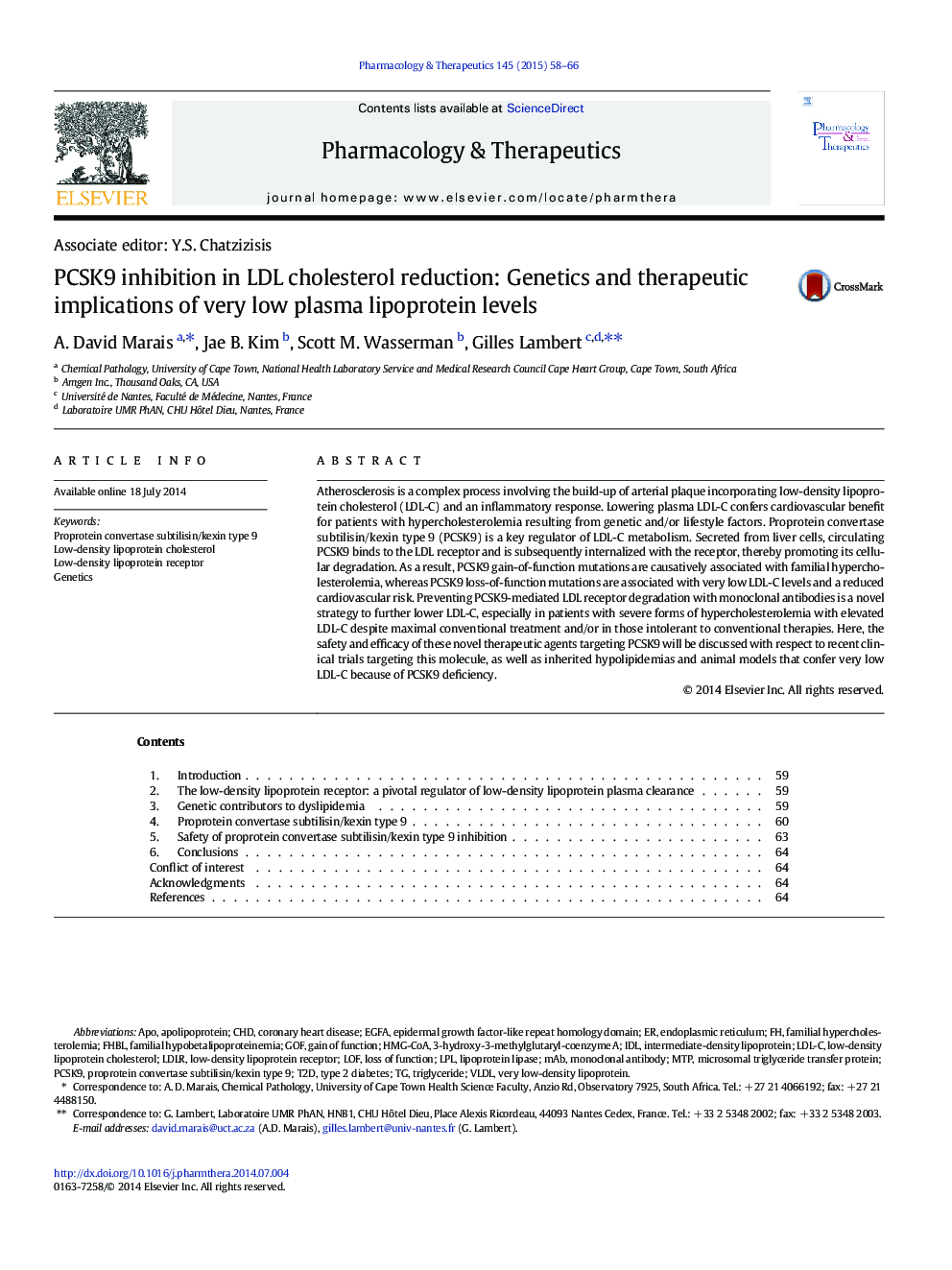| کد مقاله | کد نشریه | سال انتشار | مقاله انگلیسی | نسخه تمام متن |
|---|---|---|---|---|
| 5843986 | 1560960 | 2015 | 9 صفحه PDF | دانلود رایگان |

Atherosclerosis is a complex process involving the build-up of arterial plaque incorporating low-density lipoprotein cholesterol (LDL-C) and an inflammatory response. Lowering plasma LDL-C confers cardiovascular benefit for patients with hypercholesterolemia resulting from genetic and/or lifestyle factors. Proprotein convertase subtilisin/kexin type 9 (PCSK9) is a key regulator of LDL-C metabolism. Secreted from liver cells, circulating PCSK9 binds to the LDL receptor and is subsequently internalized with the receptor, thereby promoting its cellular degradation. As a result, PCSK9 gain-of-function mutations are causatively associated with familial hypercholesterolemia, whereas PCSK9 loss-of-function mutations are associated with very low LDL-C levels and a reduced cardiovascular risk. Preventing PCSK9-mediated LDL receptor degradation with monoclonal antibodies is a novel strategy to further lower LDL-C, especially in patients with severe forms of hypercholesterolemia with elevated LDL-C despite maximal conventional treatment and/or in those intolerant to conventional therapies. Here, the safety and efficacy of these novel therapeutic agents targeting PCSK9 will be discussed with respect to recent clinical trials targeting this molecule, as well as inherited hypolipidemias and animal models that confer very low LDL-C because of PCSK9 deficiency.
Journal: Pharmacology & Therapeutics - Volume 145, January 2015, Pages 58-66